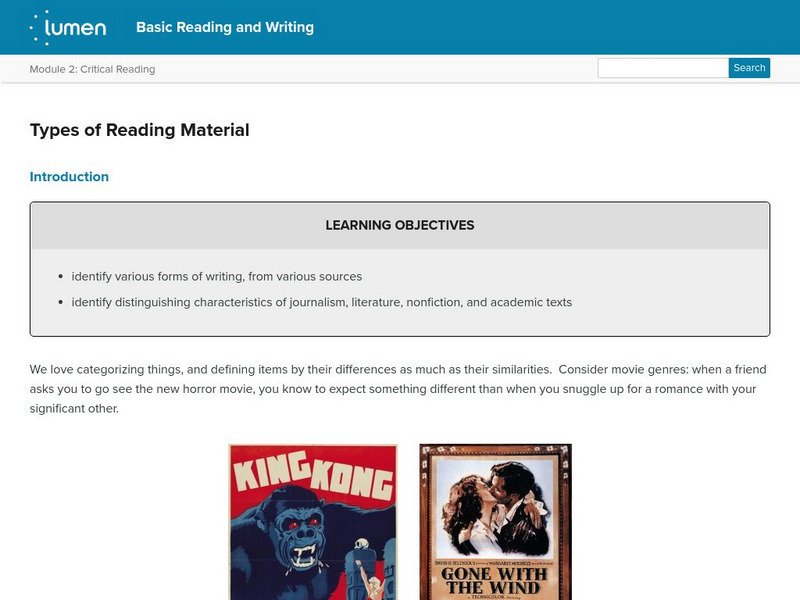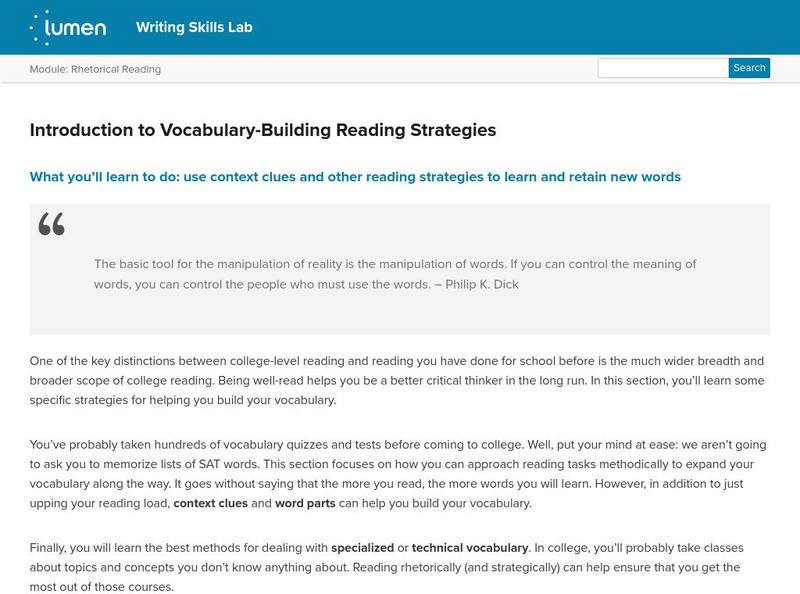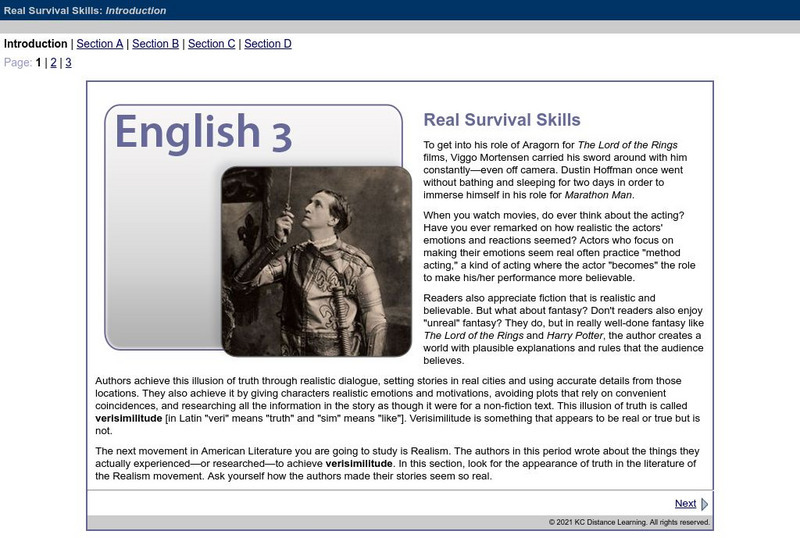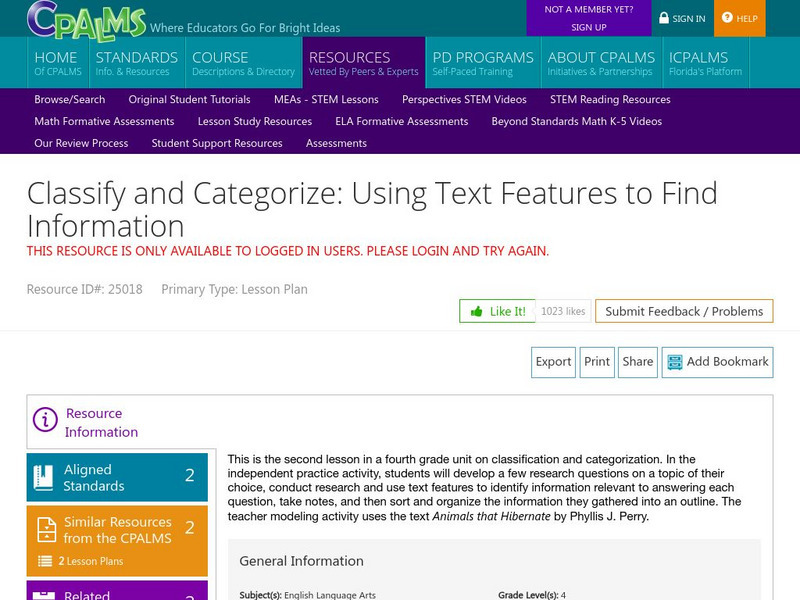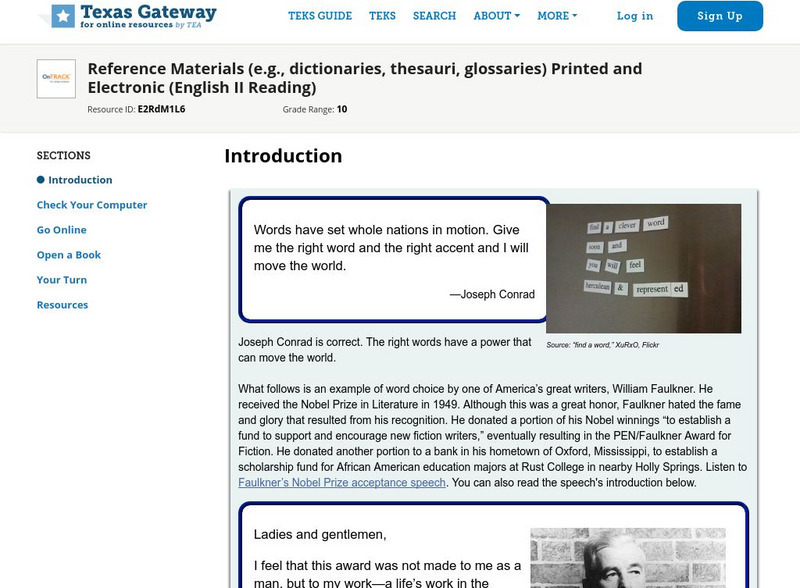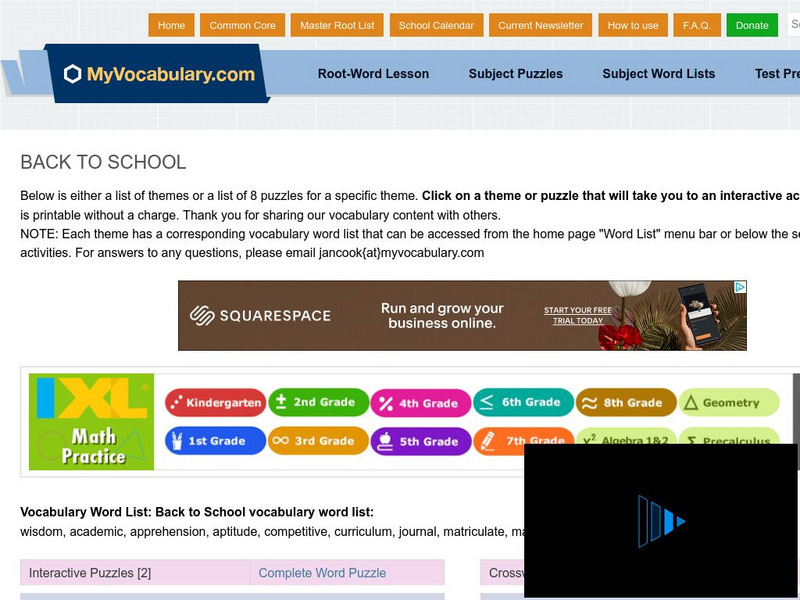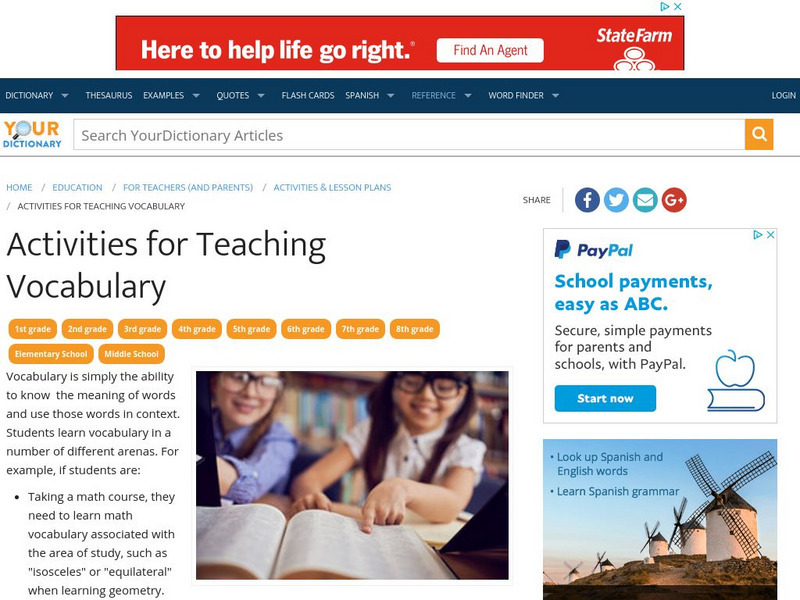Scholastic
Scholastic Teaching Resources: Informational Reading Response [Pdf]
This graphic organizer can be used with students when they read informational text. Students will write three facts they learned, two questions they still have after reading, and one interesting fact that they want to share.
Texas Education Agency
Texas Gateway: Reference Materials Printed and Electronic
Learn how to use dictionaries, glossaries, and thesauri in order to determine meanings of words and phrases, including their denotations, connotations, and etymologies.
Texas Education Agency
Texas Gateway: Applying Word Study Strategies (English I Reading)
Apply previous lessons, (1) Linguistic Roots and Affixes, (2) Denotation and Connotation, (3) Origins and Meanings of Foreign Words, (4) Cognates, and (5) Reference Materials, to improve fluency and comprehension.
Texas Education Agency
Texas Gateway: Reference Materials: Printed and Electronic
You will learn how to use dictionaries, glossaries, and thesauri in order to determine meanings of words and phrases, including their denotations, connotations, and etymologies.
Lumen Learning
Lumen: Critical Reading: Vocabulary
This lesson focuses on increasing your vocabulary including using context clues, dictionaries, and your working vocabulary. It also offers two videos with strategies for enhancing your vocabulary.
Lumen Learning
Lumen: Critical Reading: Types of Reading Material
This lesson focuses on the types of reading material and their distinguishing features. It also included two videos including the key features from a newspaper story video and a video that defines scholarly articles.
Lumen Learning
Lumen: Rhetorical Reading: Intro to Vocabulary Building Reading Strategies
This article explains in general how to build vocabulary using reading strategies such as context clues.
Lumen Learning
Lumen: Rhetorical Reading: Read Strategically: Diversify Your Vocabulary
This lesson focuses on strategies to diversify and retain new vocabularies such as reading a variety of types of writing and learning roots, suffixes, prefixes, and the etymology of words.
Texas Education Agency
Texas Gateway: Compare Narrative and Informational Texts: Practice 1
[Accessible by TX Educators. Free Registration/Login Required] In this lesson, you are going to analyze differences in texts that use visual techniques to present narrative and informational content. You will also look at how information...
Other
Library of Congress: Teaching With Primary Sources
This website is an excellent resource for teaching with primary sources. This resource features Holocaust lessons, lesson plan strategies, and podcasts.
Department of Defense
Do Dea: Real Survival Skills
Learn about process analysis, writing procedurals texts, the steps of the writing process, and cause and effect in this unit. Also, examine patterns of organization in writing. A handy chart shows common organizational patterns which...
Science Struck
Science Struck: Understanding Linguistic Relativity Hypothesis
The principle of linguistic relativity looks at the connection between language and thought processes. This resource provides an explanation of linguistic relativity, its historical context, different types of research approaches, how it...
CPALMS
Cpalms: Classify and Categorize: Using Text Features to Find Information
[Free Registration/Login Required] Students will develop research questions, classify information into an outline form, and use the features of nonfiction writing to identify information relevant to a research question.
Texas Education Agency
Texas Gateway: Reference Materials: Printed and Electronic (English Ii Reading)
This lesson focuses on using resources such as dictionaries, thesauruses (or thesauri), and glossaries to find and use words that will improve not only your reading skills but also your writing skills. L.11-12.4c References
National Endowment for the Humanities
Neh: Edsit Ement: I'm Gonna Sit Right Down and Write Someone a Letter
Through the vast online resources available from EDSITEment, students can read the correspondence of the famous, the infamous and the ordinary, some of whom lived through extraordinary times. Use these fascinating letters as a starting...
CommonLit
Common Lit: Units: 9th Grade Thematic Unit: Education
Complete teaching unit for 9th Grade Thematic Unit: "Education." Students will read six informational texts focusing on the essential question: "How can education be used to create change?" They will gather information from their...
CommonLit
Common Lit: Text Sets
This is a collection of 35 Grade-Leveled text sets (4-11). They are great for social studies teachers or for building background knowledge in reading class, CommonLit's text sets cover a range of historical, cultural, and political...
CommonLit
Common Lit: Themes: Education & Knowledge: What Is the Goal of Education?
This is a collection of Grade-Leveled texts (3-12) to address the question, "What is the goal of education?" Select a grade level and a collection of on grade-level reading passages on the topic comes up. [Free account registration...
Wisconsin Response to Intervention Center
Wisconsin Rt I Center: Preview Vocabulary Words [Pdf]
Classroom teachers will learn about previewing vocabulary words, an important instructional strategy. Teachers will learn how to implement the previewing of vocabulary, find research that supports the previewing of vocabulary, and find...
Vocabulary University
My vocabulary.com: Back to School
This is a variety of vocabulary puzzles and activities using vocabulary words pertaining to going back to school. It also offers an extensive vocabulary word list for life skills and careers.
Other
Simply Psychology: Language Acquisition
Provides an overview of the theories of language acquisition put forward by B.F. Skinner and Noam Chomsky. Includes two videos.
Love To Know Media
Your Dictionary: Activities for Teaching Vocabulary
This article focuses on the importance of teaching vocabulary and how to teach it effectively. It lists concepts that need to be considered when preparing to teach vocabulary such as prior knowledge, dictionary use, context clues, and...
Love To Know Media
Your Dictionary: Teaching Resources and Activities for Sight Words for 8th Grade
This article offers a list of words that 8th graders should know by sight and links to several online resources for teachers including Internet4Classrooms, Puzzlemaker, Tools for Educators, and Fun With Words.
Alabama Learning Exchange
Alex: Independent Research Project
Students will use the Internet to gather key facts using a variety of online resources and present their findings in a word processed paper in APA style.


![Scholastic Teaching Resources: Informational Reading Response [Pdf] Graphic Scholastic Teaching Resources: Informational Reading Response [Pdf] Graphic](https://content.lessonplanet.com/knovation/original/261457-b11bd4d074a51abd27ef520fb690e45a.jpg?1661510812)




